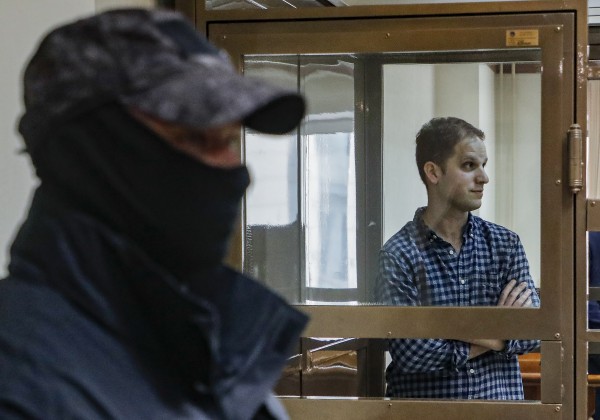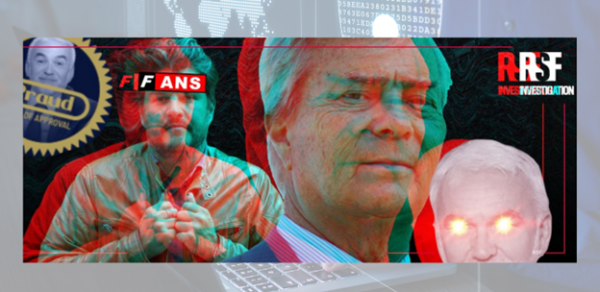IPI Press Freedom Adviser for Europe Steven Ellis is in Istanbul to speak at the Congress of the Freedom for Journalists Platform, Turkey on World Press Freedom Day, May 3, 2011. His speech is below:
We are here today to talk about press freedom in Turkey.
IPI’s Director, Alison Bethel McKenzie, and our Press Freedom & Communications Manager, Anthony Mills, came to Turkey on an emergency press freedom mission in March.
Following that visit, we at IPI remain alarmed.
A free media is vital to democracy, and you have an election coming up. The success and legitimacy of the election depends on journalists’ ability to give citizens access to the information needed to make reasoned decisions.
We are concerned that citizens may not get that information.
The continued detentions of Nedim Şener, Ahmet Şik and so many others, and the secretive nature of proceedings against so many journalists, give us particular pause.
IPI named Mr. Şener a World Press Freedom Hero last year following the publication of his controversial book on Hrant Dink’s murder.
The Award recognizes those who make a significant contribution to defending and promoting press freedom, especially for acts of resistance or bravery under harsh conditions. Many honourees have been imprisoned, attacked and tortured. Some have given their lives.
Mr. Şener was honoured for his determination to continue his reporting despite threats both inside and outside the courtroom.
The award was not one Mr. Şener accepted lightly. Two of the other 59 World Press Freedom Heroes are Turkish: Mr. Dink and Abdi Ipekci.
Both were honoured posthumously. Both were murdered for their work.
Despite some fears, Mr. Şener travelled to Vienna to accept his award at IPI’s World Congress. There, he heard an address by fellow World Press Freedom Hero Sir Harold Evans, former editor of The Sunday Times in London.
Speaking of heroes who gave their lives for their profession, Mr. Evans talked of belief in the purpose of journalism. He spoke of honouring the dead by resolving “to keep faith ourselves with their best aspirations, and to be forthright in rebuking those who carelessly and ceaselessly do not.”
He said, to paraphrase, that the names of those who gave their lives were dishonoured every time a reporter slanted facts, fomented sectional hatred, or took a bribe. Every time the freedom of the press was used to destroy reputations, for personal vendetta or for political manipulation.
Every time a journalist recycled rumour, relied on second-hand sources, or accepted the easy feed. Every time a photographer exploited private grief. Or a journalist settled for second best. Or an editor yielded to threats.
Mr. Şener drew inspiration and he continued his work when he returned to Turkey.
He now sits in Silivri Prison. Without full knowledge of the charges he faces. Without knowledge of the evidence against him. Without knowing when he will be brought to trial.
Mr. Şener, in a letter from prison, said the accusations against him are personal revenge for his book on Mr. Dink’s murder. He knew that he could face consequences when he published that book He knew that, but he did his job because he believed in what he did.
So did many of the nearly 70 journalists imprisoned or facing criminal charges.
So do you.
You’re here today to show that you believe in press freedom. That you believe in democracy and the vitality of a free media. That you believe journalists must be allowed to do their jobs. And that you accept the risk that comes from acknowledging that publicly.
Ladies and gentlemen, we are inspired by your courage and your resolve. We hope you know that IPI and many others around the globe stand with you. We stand with you despite accusations that we don’t understand Turkey, or that we bear malice towards your country.
Those charges are false. IPI has no political agenda. IPI doesn’t seek to subvert the course of justice. And we don’t seek to prejudge the outcomes of cases.
But we cannot stay silent. We are deeply troubled by the disproportionate number of journalists in prison. We are deeply troubled by the opaqueness that surrounds their cases. And we are deeply troubled that so many will likely languish in prison before trial.
Despite the government’s claims of national security implications, the current lack of transparency fuels suspicion that journalists are in prison because of their work. This suspicion is shared not only by journalists and media freedom observers, but by prominent international organizations.
The Representative on Freedom of the Media for the OSCE, the Organization for Security and Co-operation in Europe, in March called on authorities to stop intimidating media. She said the “unprecedented conduct by the authorities violates basic OSCE media freedom commitments [and]…targets and suppresses differing and critical voices.”
The European Commission’s Commissioner for Enlargement and European Neighbourhood Policy said: “Independence and freedom of the press is of utmost importance for democracy.” But in practice, he continued, a “high number of court cases against journalists and undue pressure on the media…undermine this fundamental right.”
The United Nations Office of the High Commissioner for Human Rights said:
“If there are genuine reasons to suppose that any journalists have committed crimes outside the scope of their journalistic work, then those reasons should be transparent to the journalists themselves, to their defence lawyers and to the rest of us. Otherwise, inevitably, suspicions will continue to mount that these arrests are politically motivated.”
Journalists are not above the law. Like any other citizen, a journalist proven to be an active coup participant must be held accountable. But, like any other citizen, only in proceedings that satisfy international standards for a fair trial. Journalists who are not linked to criminal acts by transparent, concrete evidence must be released.
Journalists have a fundamental right to cover sensitive topics, including national security. If they don’t engage in criminal activity, they shouldn’t face arrest, charges, imprisonment or any other harassment or intimidation for doing their job. A job that can include expressing critical views.
A flourishing, diverse, critical media is a cornerstone of any healthy democracy. But the perception created by the current situation is that journalists are imprisoned because of their work. Because they dared to criticize. Because they dared to plumb dangerous depths.
Authorities have dismissed this perception. But an alleged lack of understanding is all too often the smokescreen governments hide behind when seeking to suppress the free flow of information.
Turkey remains a candidate for membership in the European Union. In this pursuit, it is vital that Turkey live up to, rather than disappoint, the hopes and expectations that arose in the early years of the current leadership.
Turkey was held up then as a flourishing Muslim democracy; as a vital future member of the EU sharing its values, including free expression.
But today, Turkey is not perceived as striding forward, holding those values high. Across the board, the perception is that Turkey is taking steps backwards. That it is rejecting those values. That its government seeks to stifle the fundamental human right to know.
We know this does not have to be the case.
We sincerely hope that Turkey moves forward. We hope that it will continue to act as a force for moderation in the region and around the world. We hope that this country will uphold the democratic values for which it has been lauded. And return to its rightful place as a defender of press freedom.
And we know that when it does, it will be due to the efforts of those of you who stood here today.
Thank you.


